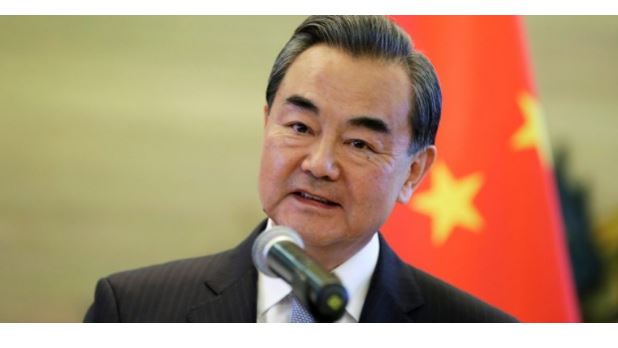Europe has a “cognitive split” in its policy towards China by trying to both be a partner and also seeing it as an opponent, Wang Yi, state councillor and foreign minister, said in an interview with state media on Thursday.
Relations between China and the European Union worsened this year after an investment deal was frozen amid tit-for-tat sanctions and EU member Lithuania withdrew its diplomats from Beijing during a dispute over the status of Taiwan.
The European Parliament this year halted ratification of an investment pact with China until it lifted sanctions on EU politicians.
China’s sanctions were a response to Western sanctions against Chinese officials accused of the mass detentions of members of the Muslim Uyghur community in western China.
Putting up barriers to the investment agreement would “ultimately harm the long-term interests of the European people”, Wang said.
“There seems to be some kind of ‘cognitive split’ in Europe’s China policy. It is hard to imagine that, on the one hand, it has established a comprehensive strategic partnership with China and on the other hand, it has positioned China as an institutional opponent,” he said.
The EU has been taking a softer stance on China, one of its most important trade partners, than the United States, but has expressed concern over its human rights record and actions in the South and East China Seas and the Taiwan Strait.
This month, EU and US officials said their approaches towards China were increasingly “convergent”.
“UNBEARABLE PRICE”
Wang Yi also made remarks about the United States and its policies, saying that it is at risk of paying an “unbearable price” due to its actions over Taiwan.
China claims democratically governed Taiwan as its own territory and in the past two years has stepped up military and diplomatic pressure to assert its sovereignty claim, fuelling anger in Taipei and concern in Washington.
By “encouraging ‘Taiwan independence’ forces” the United States “not only puts Taiwan into an extremely dangerous situation but also exposes the United States to an unbearable price”, Wang said.
Taiwan has emerged as a key factor in strained relations between China and the United States, the island’s most important international backer and arms supplier despite the absence of formal diplomatic ties.
Taiwan says it is an independent country and vows to defend its freedom and democracy. China regularly describes the island as the most sensitive issue in its ties with the United States.
“Taiwan has no other way forward other than reunification with the mainland,” said Wang.
While the United States recognises only one China, it is required by law to provide Taiwan with the means to defend itself and has long followed a policy of “strategic ambiguity” on whether it would intervene militarily to protect Taiwan in the event of a Chinese attack.

















